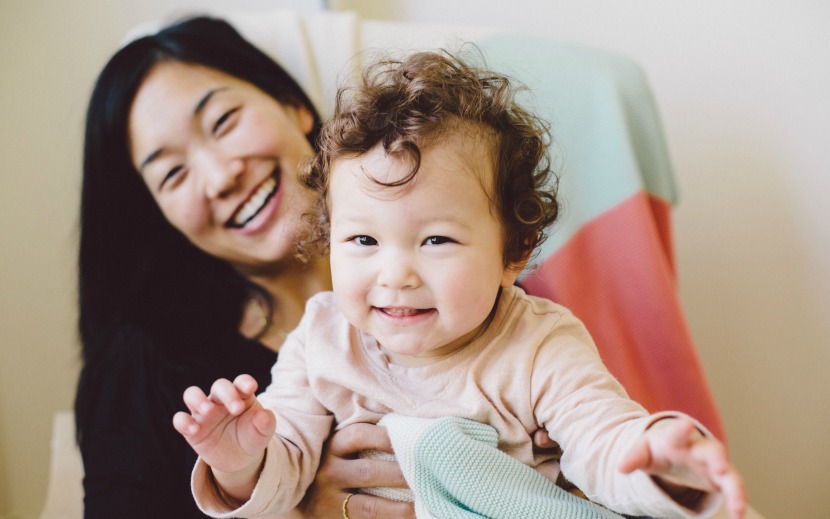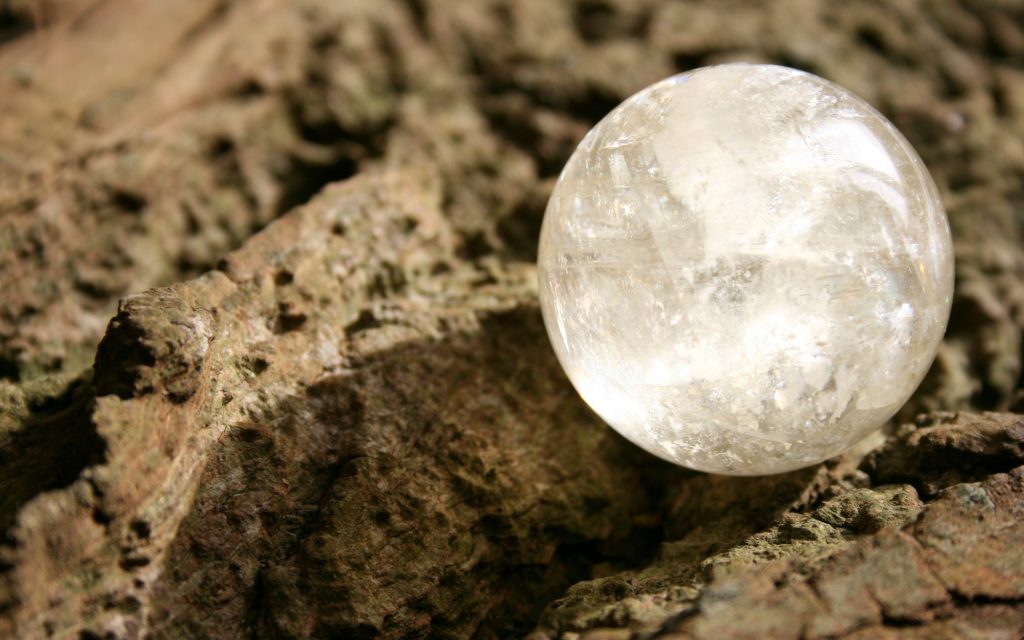Names carry both the weight of history and the promise of the future. For Mash-Ups, names also bear the weight of the culture we came from, and the new traditions we are making. But what if it took you half a lifetime to reclaim and fight for your own “ethnic” name? How do you choose a name for your daughter? Our Korean-Canadian-now-in-America Mash-Up Sy Yang tells us. Hint: It may involve a name sage in the Korean mountains.
When my husband and I found out we were expecting, we started calling the fetus “bean” or “little one” or whatever fruit or vegetable our pregnancy app told us it was the equivalent of that given week. Once we found out we were having a girl, it finally dawned on us that this was a real baby that would require a real name. Of all the items on our to-do list, this was probably the most dreaded.

I am Korean. Born and raised (for a bit). Then my family immigrated to Canada and I grew up there. I have a “complicated” Korean name (in other words, it’s hard to pronounce for English speakers, and I won’t attempt to transliterate here). I married an American with Polish and Sicilian heritage, who very much identifies as American. His name is Chris. So simple! So American!
My parents, unlike many immigrants, refused to change my name or give me an English one when we moved to Canada. When I started school in Grade 1, my teacher told me I would need an English name and gave me two options: Sandy or Sonia. There was already a Sandy in my class, so Sonia it was.
I will never forget that moment standing in front of Miss Murray’s desk with my parents and our Korean-Canadian real estate agents, who were acting as interpreters for us. I remember she wrote out “Sonia” on my name place card, as perfectly as if it were a printed picture, and I was enthralled. I thought I was living inside a movie where blond, blue-eyed kids would say “Hi Sonia!” and it was perfectly normal.
I remained “Sonia” for all of elementary school as I went through a few years of learning English and getting used to the dual existence of living in a Korean household but going to Canadian school in what I sometimes still believed to be a movie set. In this movie, my teachers called me “Sonia,” I wrote “Sonia” on my artwork and homework, and my name cards read “Sonia.” Only my school registration papers had my legal Korean name.
I was living inside a movie where blond, blue-eyed kids would say “Hi Sonia!”
When I started high school in a different district, my parents convinced me to stop using Sonia altogether. And I tried (sorta). But the pressure of making new friends as an adolescent girl was enough pressure and I started telling friends they could call me Sonia. Through it all, my mom particularly disapproved of the fact that I used an English name. But in the context of speaking to my Canadian friends or to my teachers in her broken English, she also referred to me as “Sonia.” I guess even she wasn’t immune to social pressures.
When I went away to college in the Northeast, in the U.S., (which, for a West Coast Canadian was as much of a “foreign” experience as any), I completely shed Sonia once and for all. It took some guts and perseverance to go to a completely new place, meet hundreds of new people at once, and have confidence that they would care enough to learn how to pronounce my name.
But the simple act of saying my Korean name out loud and taking ownership over it as an English speaker changed everything. And the more I personally took ownership of its pronunciation, the more easily others seemed to take up the pronunciation. In the end, everyone in college learned my full, real name and pronounced it beautifully.
And I had an immense boost in self confidence because so many people complimented me on my name — my real, given name. In a bizarre way, I felt more authentic and anchored in who I was. And unexpectedly, my name then evolved into Sy, which is what I go by now. I always signed my emails with my initials, “SY,” and it happens to sound like the first half of my Korean first name. I have been exclusively Sy ever since.
Fast forward to naming our soon-to-be daughter… As our pregnancy progressed, I was in serious nesting mode, which for me included planning, preparing, and dreaming of our growing family. At the time, I was working on starting my business, a family brand called koko’s nest, and seriously contemplating what it meant to be a new family. And all of a sudden, the naming of our baby started to feel like a critical early decision in creating a unified yet multiethnic, multicultural, multilingual family.
We eventually came to some guiding principles for naming our daughter. One, she would take my husband’s last name (when we got married, I kept my family name). Two, she would have a Korean first name (‘cause she wouldn’t have a Korean last name and it seemed only logical). And three, said first name would need to be easy to pronounce for English speakers — ideally it would be an English name that could easily convert to an authentic Korean name.
I shared with my mom our guiding principles. She was, of course, thrilled that she would have a Korean name. In true Korean mom fashion, her response was something like “of course she has to have a Korean name,” as if she would have died of indignation if we had decided any other way. A couple of weeks after that conversation, I got a frantic message from my mom, who was living in Korea at the time, asking me what time it was when my husband was born. I knew she was up to something, and she was indeed. I called her back within minutes.
My mom visited a naming sage in some mountain somewhere.
She had traveled to visit a naming sage who lived up in some mountain somewhere in rural Korea. According to her, he is “famous.” Note for non-Koreans: For Koreans, what it means to be “famous” is defined loosely, but it is the single most significant reason to do, buy or think anything. I pictured some old, white-bearded man living in a traditional hut in the mountains, and holding office hours to a queue of urban ajummas with perms, eagerly awaiting a chance to find the perfect name for their grandchildren. My mother was one of them, finding a way to skip the queue altogether, ‘cause she’s my mom.
Anyways, based on the family names, as well as the times and dates of birth for my husband and me, the sage discerned some ideal names for our future daughter. I loudly insisted that the decision for our daughter’s name was solely our own, and she said she understood, in the same tone that she used to tell me I would eventually grow taller (which incidentally never happened).
A couple of weeks later, we received a package in the mail. It was two certificates, framed in blue velvet-lined booklets. They were two names for our unborn daughter. We didn’t think twice about them because they were much too Korean-sounding; it contradicted our third guiding principle.
We didn’t really make a physical list of possible names until I was overdue, too pregnant to do anything, and I was losing my mind waiting for labor to begin. The names were largely drawn from a pretty pathetic google search (try googling “easy to pronounce Korean names”) that yielded nothing too impressive or comprehensive. Surprisingly, my husband was much more opinionated than I was. I thought they all sounded like names of strangers, not our own daughter.
I tried to see if I could say the name with tenderness, and with impatience.
After our daughter was finally born, we were so eager to take her home. But we had to give her a name first. So with our bags pretty much packed, and discharge papers signed, we sat down with our list and tested out the dozen names on our list. Our newborn was still swaddled and sleeping in her little hospital bassinet on wheels; my husband and I sat on the bed and read the names aloud, gazing over at her smushy newborn face and body for reference. For whatever reason, as I was vocally testing out these names, I tried to see if I could say the name both with tenderness, and with impatience, as if I were getting mad at her.
In the end, we arrived at Tae — one of the names created by the ol’ sage in the mountains. It’s pronounced “tay-ee”, in two syllables. It means at least in part, something along the lines of having an openness to the world, but don’t quote me on that.
I’d be lying if I said that we had a transcendental moment when we said “Tae” out loud and we knew that it was the right and only name for her. It wasn’t like that at all. But based on my personal experience, a name is not definitional; it is relational. My name has evolved, and so has my relationship with it. Ultimately, the significance of my name has generally had an inverse relationship to my level of self-confidence and strength of identity. The more I matured and gained confidence in who I was, the less my name defined me.
Tae is still growing into her name, and everyone around her is growing into it as well. We don’t know what we will end up calling her over the years, we don’t know what nicknames her friends will come up with, and we don’t know what kind of identity crises she will go through in her youth as a multi-ethnic, multi-lingual, and multi-cultural being. But our job as parents was to give her a name with thought and integrity that will provide a strong foundation for her future self. And hey, if she hates it and struggles with it, it will build character, just like it did for me.


